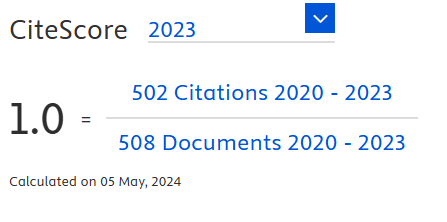Stress Management Programme on the Stress of Chiang Mai University Students: A Pilot Study
DOI:
https://doi.org/10.18006/2022.10(4).879.885Keywords:
Stress management programme, Breathing technique, Muscles relaxing technique, Mindfulness, CBT, University studentsAbstract
Stress is the problem that is often found in students due to their higher expectations and the changes happening at the personal, social and environmental levels. The main objective of the present study was to develop and analyze the results of a stress management programme conducted for students at Chiang Mai University, Chiang Mai, Thailand. This was quasi-experimental research, conducted according to the one-group plan. The student initiatives included five Chiang Mai University students, selected through purposive sampling after passing the initial screening. They were evaluated by completing the basic information questionnaire of the Suanprung Stress Test-20 (SPST-20) and the Suanprung Stress Test-60 (SPST-60) before and after the programme. The tools used in this study were developed from the conceptual framework according to the Canadian Model of Occupational Performance and Engagement (CMOP-E) model. The researcher used the breathing technique using the diaphragm, and muscle relaxing technique. The concept of emotional awareness was conducted according to the four foundations of mindfulness, and cognitive behavioral therapy (CBT) with group process in occupational therapy. The results of the study revealed that the sample population had significantly lower stress levels after joining the stress management programme. However, it was observed that there was no difference in the susceptibility to stress levels before or after joining the programme. In general, this stress management programme can be undertaken by other students of Chiang Mai University to monitor their stress levels.
References
Brown, R.P., & Gerbarg, P.L. (2005). Sudarshan Kriya Yogic breathing in the treatment of stress, anxiety, and depression: Part II-clinical applications and guidelines. The Journal of Alternative and Complementary Medicine, 11(4), 711-717. DOI: https://doi.org/10.1089/acm.2005.11.711
Carmody, J., Reed, G., Kristeller, J., & Merriam, P. (2008). Mindfulness, spirituality, and health-related symptoms. Journal of Psychosomatic Research, 64(4), 393-403. DOI: https://doi.org/10.1016/j.jpsychores.2007.06.015
Chiangkoontod, S. (2018). The development of the stress management program according to the Buddhist Psychology for students in Faculty of Nursing, Siam University. Unpublished PhD thesis submitted to the Maha Chulalongkorn Rajavidyalaya University, Bangkok.
Chidduan Y. (2013). The result of using the program to reduce the stress of Children and the youth of the children and the youth center of observation and protection, Nakhon Pathom Province. Radio Journal, 24(4), 65-15.
Cole, M.B. (2018). Group dynamics in occupational therapy: The theoretical basis and practice application of group intervention (5thed.). USA: SLACK Incorporated.
Davis, M.T., Holmes, S.E., Pietrzak, R.H., & Esterlis,I. (2017). Neurobiology of chronic stress-related psychiatric disorders: Evidence from molecular imaging studies. Chronic Stress, 1(1), 1-21. DOI: https://doi.org/10.1177/2470547017710916
Dhyani, D., Sen, S., & Raghumahanti, R. (2015). Effect of progressive muscular relaxation on stress and disability in subjects with chronic low back pain. IOSR Journal of Nursing and Health Science, 4(1), 40-45.
Grossman, P., Niemann, L., Schmidt, S., & Walach, H. (2004). Mindfulness based stress reduction and health benefits: A meta-analysis. Journal of Psychosomatic Research, 57(1), 35-43. DOI: https://doi.org/10.1016/S0022-3999(03)00573-7
Hamasaki, H. (2020). Effects of diaphragmatic breathing on health: A narrative review. Medicines, 7(65), 1-19. DOI: https://doi.org/10.3390/medicines7100065
Hopper, S.I., Murray, S.L., Ferrara, L.R., & Singleton, J.K. (2019). Effectiveness of diaphragmatic breathing for reducing physiological and psychological stress in adults: A quantitative systematic review. Joanna Briggs Institute Database of Systematic Reviews & Implementation Reports, 17(9), 1855-1876. DOI: https://doi.org/10.11124/JBISRIR-2017-003848
Jafar, H.M., Salabifard, S., Mousavi, S.M., & Sobhani, Z. (2016). The effectiveness of group training of CBT-based stress management on anxiety, psychological hardiness and general self-efficacy among university students. Global Journal of Health Science,8(6), 47-54. DOI: https://doi.org/10.5539/gjhs.v8n6p47
La, P., & John, J.E. (2002). The impact of abbreviated progressive muscle relaxation on salivary cortisol. Biological Psychology Journal, 60(1), 1-16. DOI: https://doi.org/10.1016/S0301-0511(02)00010-8
Leungprawat, N. (2004). The result of using the method of managing with the stress by the meditation, Four Noble Truths and the tensing and the relaxing of muscles training for managing with the stress of Srinakharinwirot University students. Unpublished M.Sc. dissertation submitted to the Srinakharinwirot University, Bangkok.
Lia, Y., Suna, W., Sunb, X., Suna, J. et al. (2020). Effects of mindfulness meditation on anxiety, depression, stress, and mindfulness in nursing students: A meta-analysis and trial sequential analysis of randomized controlled trials. Frontiers of Nursing,7(1), 59-69. DOI: https://doi.org/10.2478/fon-2020-0001
Ma, X., Yue, Z., Gong, Z., Zhang, H., et al. (2017). The effect of diaphragmatic breathing on attention, negative affect and stress in healthy adults. Frontier in Psychology, 8(874), 1-12. DOI: https://doi.org/10.3389/fpsyg.2017.00874
Mahatnirunkul, W., Poomphisalchai, W., & Tapunya, P. (1997). The research report in the topic of the creation of the Suanprung Stress Test. Chiang Mai: Suanprung Hospital, Chiang Mai Province.
Mennuti, B.R., Freeman, A., & Christner, W.R. (2006). Cognitive behavioral intervention in educational settings, a handbook for practice. New York: Taylor & Francis Group DOI: https://doi.org/10.4324/9780203956007
Merakou, K., Tsoukas, K., Stavrinos, G., Amanaki, E., et al. (2019). The effect of progressive muscle relaxation on emotion competence: depression, anxiety, stress, sense of coherence, health-related quality of life, and well-being of unemployed people in Greece: An intervention study. Explore, 15(1), 38-46. DOI: https://doi.org/10.1016/j.explore.2018.08.001
Ministry of Public Health (2020). Department of Mental Health revealed that Thai adolescents consulted the mental health hotline 1323 in 2019, found the most problem is the stress problem and suggest the stress management techniques Retrieved from https://www.dmh.go.th/news-dmh/view.asp?id=30188
Portoghese, I., Galletta, M., Porru, F., Burdorf, A., et al. (2019). Stress among university students: factorial structure and measurement invariance of the Italian version of the Effort-Reward Imbalance student questionnaire. BMC Psychology, 7(68), 1-7. DOI: https://doi.org/10.1186/s40359-019-0343-7
Reddy, K.J., Menon, K.R., & Thattil, A. (2018). Academic Stress and its Sources among University Students. Biomedical & Pharmacology Journal, 11(1), 531-537. DOI: https://doi.org/10.13005/bpj/1404
Regehr, C., Glancy, D., & Pitts, A. (2013). Interventions to reduce stress in university students: A review and meta-analysis. Journal of Affective Disorders, 148(1), 1-11. DOI: https://doi.org/10.1016/j.jad.2012.11.026
Sedaghatb, M., Mohammadia, R., Alizadeha, K., & Imania, A.H. (2011). The effect of mindfulness-based stress reduction on mindfulness, stress level, psychological and emotional well-being in Iranian sample. Procedia Social and Behavioral Science, 30(11), 929-934. DOI: https://doi.org/10.1016/j.sbspro.2011.10.180
Silveira, E.A., Batista, K.M., Grazziano, E.S., Bringuete, M.E.O., & Lima, E.F.A. (2020) Effect of progressive muscle relaxation on stress and workplace well-being of hospital nurses. Enfermería Global, 58(1), 486-493.
Singhchada, A., Rojphisalkij, K., & Nokdee, S. (2016). The result of the stress management program on the stress of elderly persons. Academic journal of Huachiew Chalermprakiet University, 19(38), 49-60.
Stromberg, S.E., Russell, M.E., & Carlson, C.R. (2015). Diaphragmatic breathing and its effectiveness for the management DOI: https://doi.org/10.3357/AMHP.4152.2015
of motion sickness. Aerospace Medicine and Human Performance, 86(5), 452-457.
Yooiam, S., Srisawad, P., Sooknaisit, A., & Kullanapadol, P.(2017). The development of the stress management program with the giving of the advice in the integrated form together with the alternative medicine. Journal of the Police Nurse, 9(2), 139-152.
Downloads
Published
How to Cite
License

This work is licensed under a Creative Commons Attribution-NonCommercial 4.0 International License.












